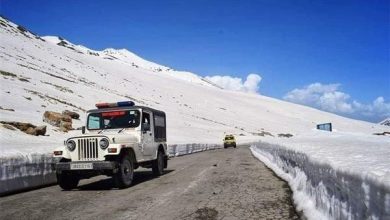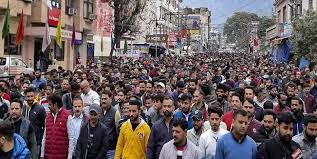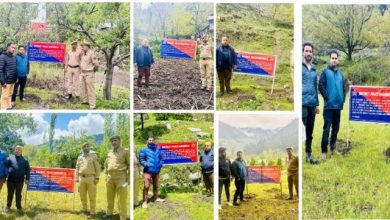Controversy shrouds Modi’s Kashmir visit as critics question timing and intent
 Srinagar: Indian Prime Minister Narendra Modi’s visit to Indian illegally occupied Jammu and Kashmir, possibly on March 7, has ignited a storm of political debate and speculation among his critics.
Srinagar: Indian Prime Minister Narendra Modi’s visit to Indian illegally occupied Jammu and Kashmir, possibly on March 7, has ignited a storm of political debate and speculation among his critics.
According to a Srinagar-based English daily, Tarun Chugh, the BJP’s general secretary, chose to maintain secrecy surrounding the visit, neither confirming nor denying the reports. When questioned by media persons about the visit, Chugh’s response, “Information about the Prime Minister’s visit will be shared officially very soon,” has only deepened the mystery surrounding Modi’s potential itinerary.
Critics of the visit have raised questions about its timing and underlying motives, particularly when the special status of the territory is revoked in the wake of the abrogation of Article 370. They argue that the visit may exacerbate the already sensitive political landscape of the territory.
While BJP officials suggest that the visit will focus on official functions and developmental initiatives, analysts point to broader political implications. If the visit proceeds as scheduled, it will mark Modi’s first visit to Kashmir following the abrogation of Article 370 and just ahead of the likely two-day visit of the poll panel to IIOJK on March 12 and 13. This timing underscores the potential political impact of Modi’s visit.
In the absence of official confirmation, speculation has run rampant regarding the visit’s schedule and agenda. Some analysts speculate that the visit may be aimed at bolstering electoral prospects, especially amidst discussions of simultaneous assembly and parliamentary elections in Jammu and Kashmir.
The absence of official confirmation has only heightened speculation, with observers closely monitoring developments leading up to the proposed visit.








